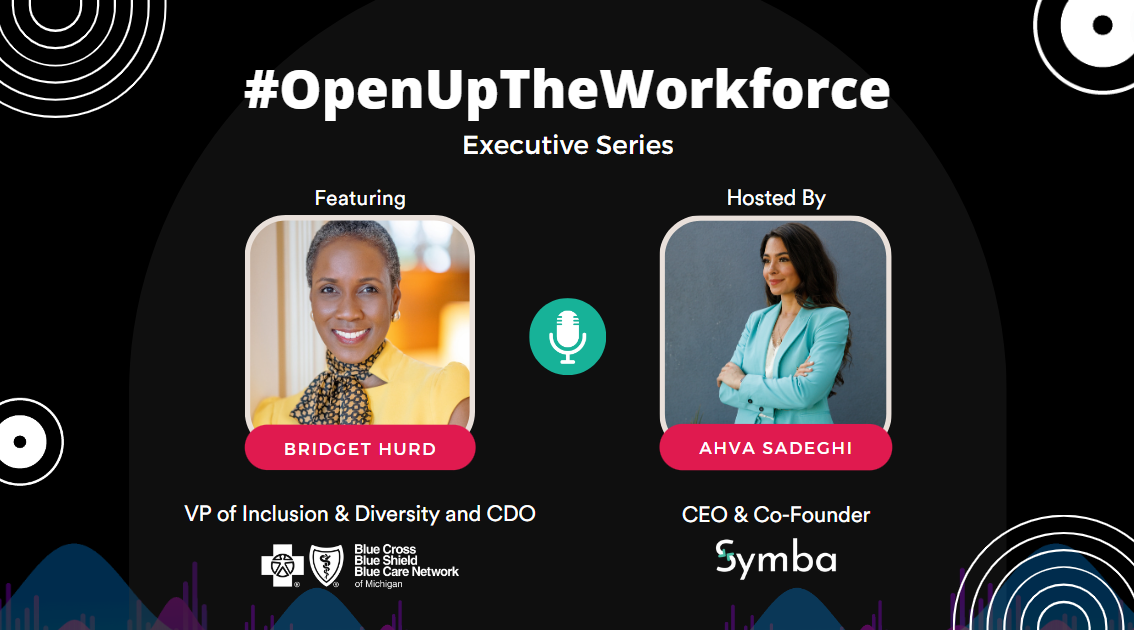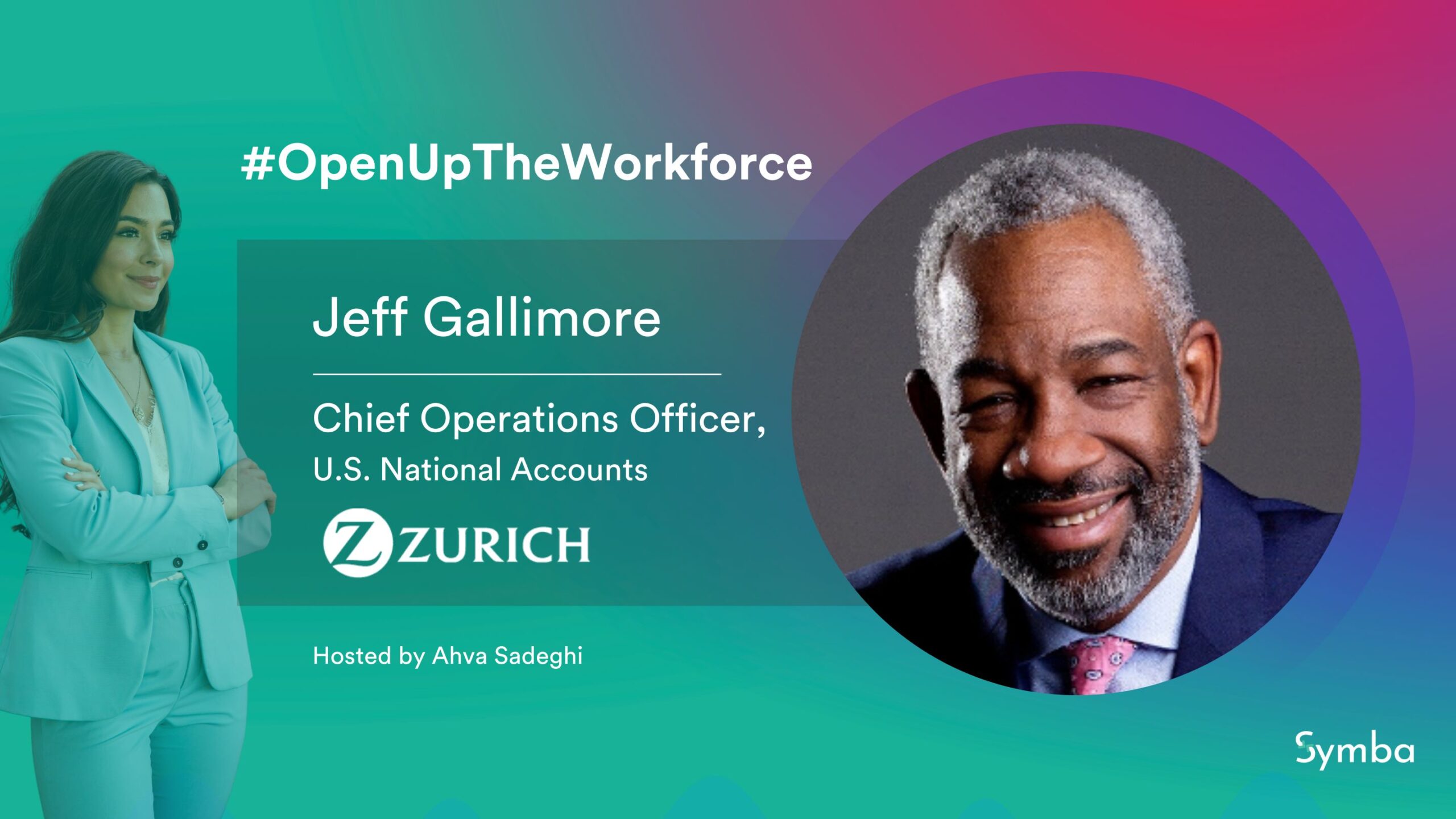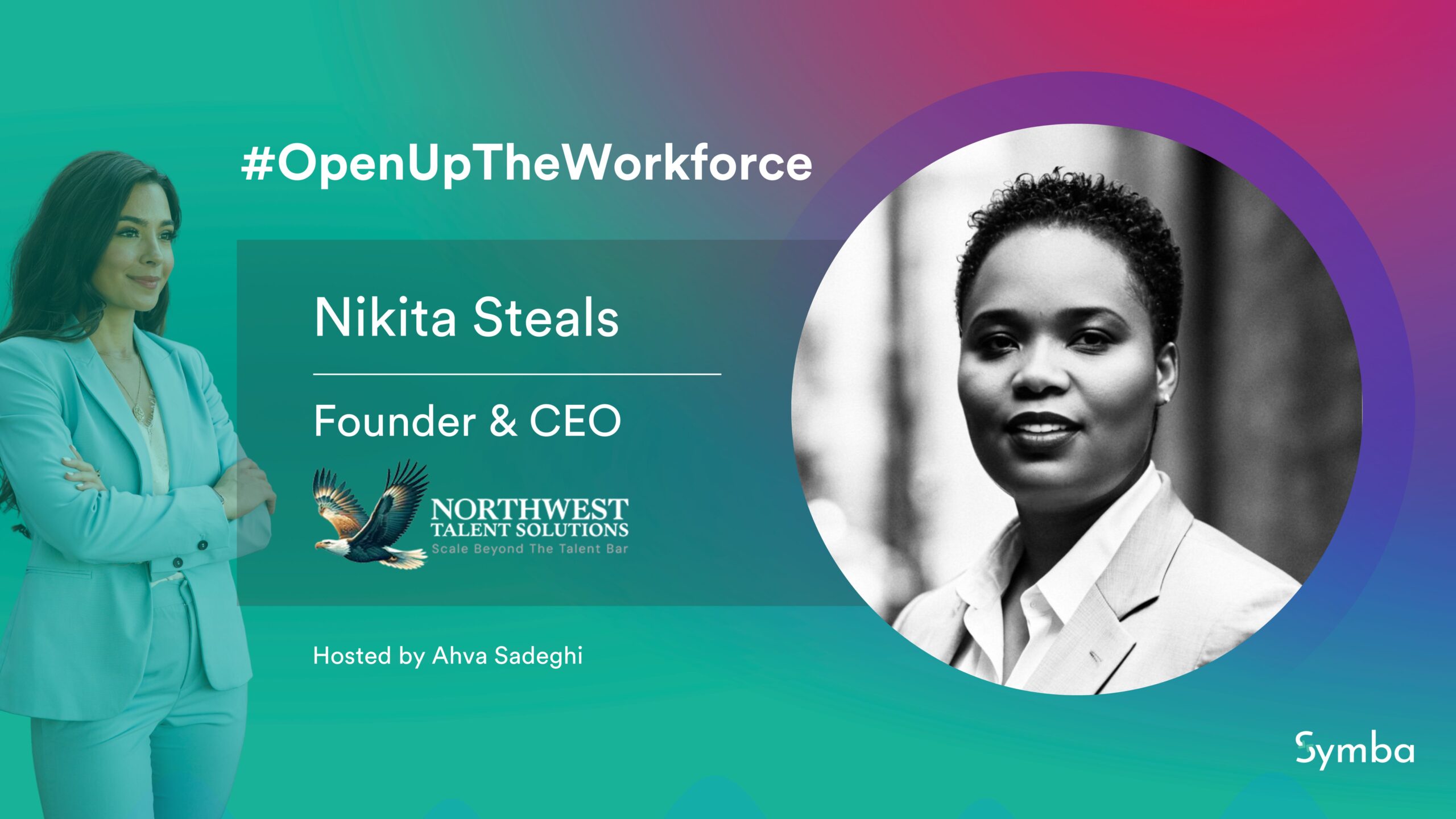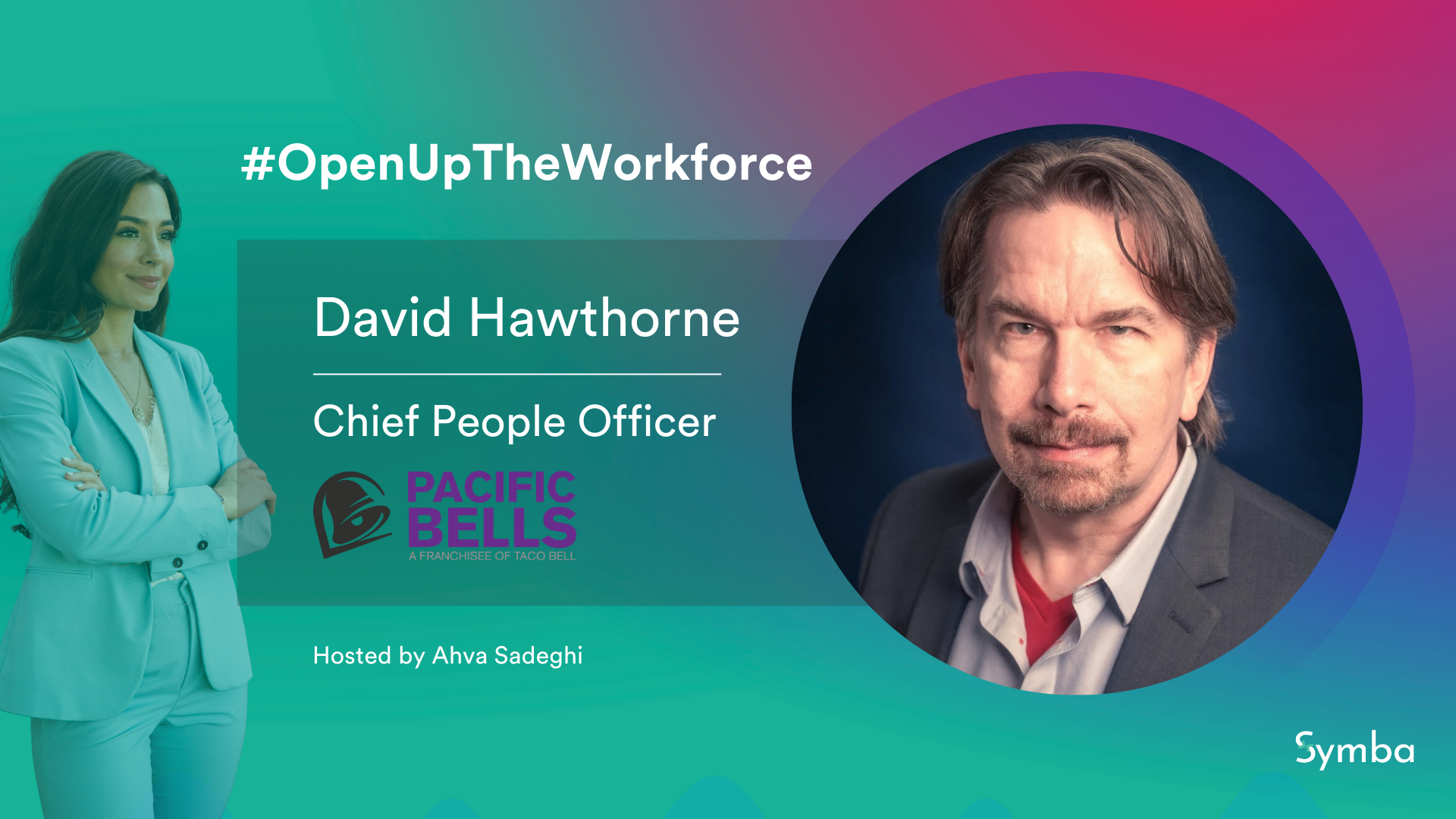Presented by Symba, #OpenUpTheWorkforce interviews feature executives advancing inclusion, diversity, and equity for the future of work. In these short audio-only episodes, we talk with the top about what it takes to develop and implement inclusive processes.
In this episode of #OpenUpTheWorkforce, Bridget Hurd, Vice President of Inclusion & Diversity and Chief Diversity Officer at Blue Cross Blue Shield of Michigan, emphasizes how communication is key in inclusion and diversity work, and shares how BCBS of Michigan embeds cultural competency in their efforts to mitigate bias and address disparities. Listen here.
Ask the community you serve what they need.
Bridget’s background is in communications, and she has brought that experience and her skills in community relations to her various roles in the healthcare industry. She emphasizes the importance of understanding the communities she works in, and the necessity of asking first before interjecting. Leaders should never simply assume what their communities need.
Cultural Competency is a cornerstone at Blue Cross Blue Shield of Michigan.
Bridget emphasizes that culture is not just defined by race, it’s the broth you are living in. Considering introversion as a cultural identity was an “aha” moment for Bridget that broadened the idea of cultural identity. Bridget expands on this:
“When we think about our workplace community, it's something like understanding if an employee has an introverted quality or an extroverted quality. And for the leaders in particular, it provides a pathway for how to engage best with an employee so they can be their very best. So it's really taking that opportunity to develop that cultural competency and being able to tune in to the needs of the person that is in front of you. And I often say the opportunity to get people out of boxes.”
In order to promote cultural competency, employees are encouraged to engage with BCBS of Michigan’s numerous employee resources networks, whether they identify themselves or are an ally. These groups serve as a point of connection to learn more. BCBS of Michigan also hosts 150 learning sessions yearly exploring these different cultures and communities. These work-integrated training sessions are significant; learning from a colleague is different from external learning and inspires greater consciousness and nuanced understanding.
Advancing health equity is 1 of the 4 strategic objectives of BCBS of Michigan’s Inclusion & Diversity strategy.
Understanding health disparities is complex. The first step is to level-set on the terminology and what they mean. Then take the time to understand the data and develop interventions that engage the entire healthcare ecosystem. Blue Cross Blue Shield has been working on this since 2016, and in December of 2020 formalized an office of health and healthcare disparities. Whether your organization services the healthcare industry or not, we all play a role in this. Driving greater health equity in the US requires the support of community partners, the pharmaceutical industry, and employers who are providing healthcare coverage and benefits to their employees. The key is talking with each other to learn and improve together. One example of this that Bridget participated in is the Michigan Coronavirus Task Force on Racial Disparities, an interdisciplinary collaboration involving many stakeholders to provide reliable information and access to testing sites.
How do Inclusion & Diversity fit into HR at BCBS of Michigan?
BCBS of Michigan embeds concepts of I&D in all business practices; for example, in product development they build digital experiences that are inclusive of a broad community, they work with procurement to encourage supplier diversity, and they collaborate with their value-based care program to address health equity. HR & talent acquisition teams have a lot in place like pipeline programs beginning with the middle school level, and recruiting from HBCUs and community colleges. On the retention side, BCBS helps employees understand how to grow in their careers and that they have lateral growth options, and offers coaching and mentoring to help their employees develop. Bringing it back to cultural competency – when implemented there is no other option but to grow and develop.
What do leaders need to do to #OpenUpTheWorkforce?
Bridget recommends understanding the unconscious biases you have and observing how that plays out into who and how you hire and mentor, and the opportunities you provide for special assignments and projects. She urges leaders to build cultural competency and understand the real people’s stories. Bridget provides an example of a VP at BCBS of Michigan who shared with her that most of their team was white. They just had an open position and were considering two highly qualified candidates, one Black and one White, and the White candidate ended up getting the job. Bridget says that the open conversation helped them realize that their Black candidates weren’t provided the same opportunities to gain experience in that specific market. Because of the learning sessions mentioned before, this VP became aware of this existing bias, which is the first step to establishing more inclusive recruiting processes.
About Bridget Hurd
Ms. Hurd is the vice president, Inclusion and Diversity and Chief Diversity Officer at Blue Cross Blue Shield of Michigan where she is responsible for leading and executing the corporate inclusion and diversity strategy for Blue Cross and its subsidiaries and shaping a culture of inclusion where all perspectives are valued. She also leads the Office of Health and Health Care Disparities with a vision of Better Health for All where she developed a framework for advancing health equity and focuses on achieving health equity in the delivery of, quality and access to care. Ms. Hurd leads the enterprise’s Diversity Leadership Councils, Physician Diversity Council and oversees cultural competency learning opportunities for employees where employees learn about different cultures, communities, generations, workstyles and perspectives; coaching programs through its Employee Resource Networks, 14 employee resource networks and the integration of an inclusion lens in providing service to members and customers.
She represented Blue Cross on the Michigan Coronavirus Task Force on Racial Disparities, appointed by Governor Gretchen Whitmer in April 2020. She serves on the Blue Cross Blue Shield Association’s Health Equity Champions Committee and is a co-chair for the national Health Care Transformation Task Force Health Equity Advisory Group. Hurd is a recipient of the national DentaQuest 2020 Health Equity Heroes award which recognizes individuals working to achieve equity during the coronavirus pandemic. In 2021, she was also recognized as a Top 100 Diversity Officer by the National Diversity Council.
.
.
.
You can view other episodes of #OpenUpTheWorkforce here. Are you an executive leader increasing access to jobs and wealth creation? Request to be featured and show us how you #OpenUpTheWorkforce.





